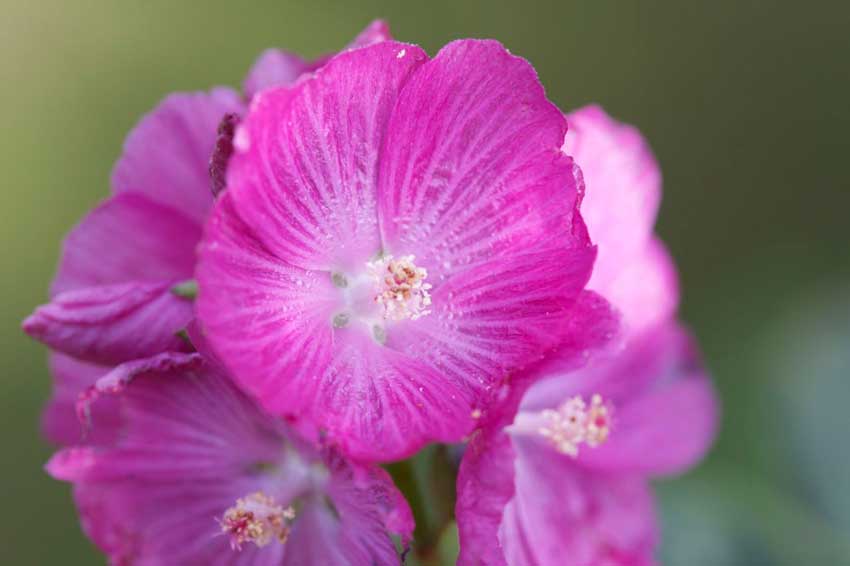Plants for bees
Anna and I, along with half of the Aberystwyth Beekeeping Association attending a lecture in the National Library on Wednesday. It was a lunchtime lecture so we all met up for dinner in the cafe first and then headed into the very nice lecture theatre.
The lecture was titled ‘Plants for Bees‘ and was given by William Kirk, author of a book with the same name. The lecture was essentially a review of his book with a little introduction about how he came to write it. He was a good speaker and it was interesting enough if a little basic for me and Anna. I guess it’s difficult to now what level to pitch such a lecture when giving it to the general public.
It was however refreshing that his outlook on the health of bees in general wasn’t all doom and gloom. Yes there was the usual concerns about loss of species and the decline in bee (and other insect) populations due to habitat destruction, but this was nicely balanced with a few success stories about new bee species making their way to the UK and the fact that some populations of certain species are on the increase.
I was also pleased to hear that he didn’t jump on the band wagon when quizzed about neonicitinoid pesticides. Beekeepers seem to think that these are the root of all evil at the moment and there are huge campaigns amongst many bee-keepers and conservationists to ban them. William took a much more balanced view saying that although scientific evidence shows that when fed neonicitinoids bee do suffer, there is no evidence that the bees actually ingest the pesticides when they are used as seed dressings etc. So, although neonicitinoids themselves are dangerous to bees (they are insecticides after all) there is no evidence that the way they are used is harmful to bees. He also made the point that beekeepers jumping up and down about them won’t necessarily help, especially if it proves that they aren’t to blame and something else is. His view was that until there is definitive proof that something is causing a problem there is little point focussing all of your energy on trying to ban it. It is much more likely that there is a combination of things causing the decline in bees so a helping them where we can is the way forward.
He was also pragmatic about intensive farming and habitat destruction brought about by it. He rightly pointed out that it isn’t the farmers fault but society in general as we all want cheap, good quality food and the farmers can only provide that through intensive farming techniques. We as individuals are unlikely to have much chance of changing these farming practises so we are much better of doing what we can for the bees where we can rather than trying to change a farming industry that is essential for the food needs of the human race. We can do this in our own gardens by planting the correct plants.
So what are the correct plants? Well there are loads of them and each species of bee will benefit from different plants. This is where the book Plants for Bees comes in as it lists hundreds of plants that are beneficial for bees and has a quick and easy guide that shows you which bees benefit from which plants. It is beautifully illustrated with some gorgeous photos and should be on every beekeepers and gardeners bookshelf. If you have a love of nature then I recommend it. I haven’t read it all yet but as a reference guide it should be good.
So, what do I think about the loss of habitat and the decline of bees? Well, obviously it’s a problem but I tend to look at the big picture of evolution and extinction over geological time. Yes, humans are having a huge impact on the earth and its inhabitants and yes, monocultures and intensive farming are clearly not ideal for maintaining biodiversity. However, on the other hand humans are nothing special, we’re just another species trying to make the best of what we’ve got during our time on this planet. Some of the things we do will impact negatively on other animals, but that’s just the way things are with natural selection. Other things we do will force other species to evolve. Evolution is driven by change, be it from predation, competition or environmental change and humans are all part of the picture. We may be driving certain species to extinction and we may be doing it faster than ever, but extinction is also a necessary part of evolution. Don’t get me wrong, I’m not suggesting it is a good thing or that we shouldn’t try to limit our impacts on the other species that we share the planet with, I am a nature lover after all. But humans are just another animal and we won’t be around for ever. We’ll become extinct just like everything else and the rest of the natural world will just carry on as it always has done. We aren’t the first species to have significantly altered the world around us and we won’t be the last.
















Thanks for the book recommendation, I’ve added it to my Amazon wish list. I find the thought that humans won’t be here forever strangely comforting!
Hi Emily, I still haven’t had time for a proper read of the book, but it is sat there on the side looking glorious waiting for me. Can’t wait to get stuck into it, especially now that I’ve tidied the garden and got it ready for Spring.
If you can, buy the book (and anything else from Amazon) via a link here. I then get some commission which all goes towards helping keep the site running and supporting my enviable (although financially impoverished) ‘Simple Life of luuxury’.
Glad my humans won’t be around forever commonest struck a chord… We won’t be, and once we’re gone the world and whatever else is left here will continue on regardless. Some other species will no doubt be changing the world by then for good or for bad but the cycle will continue… Unless of course the Earth gets destroyed by some enormous astronomical event before that happens.
Al.
Thanks Alan, will try to remember about buying through one of your links. Sometimes I buy things from Amazon through the Bumblebee Conversation Trust so that they get commission, makes sense to get Amazon to give money to people/organisations poorer than them!